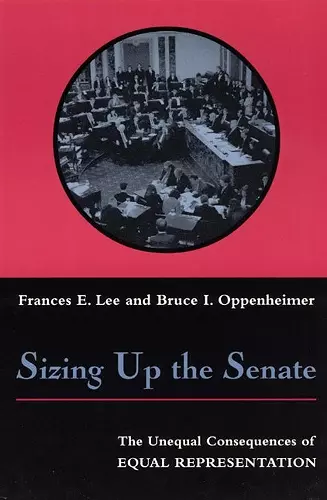Sizing Up the Senate
The Unequal Consequences of Equal Representation
Bruce I Oppenheimer author Frances E Lee author
Format:Paperback
Publisher:The University of Chicago Press
Published:15th Nov '99
Currently unavailable, and unfortunately no date known when it will be back

We take it for granted that every state has two representatives in the United States Senate. Apply the "one person, one vote" standard, however, and the Senate is the most malapportioned legislature in the democratic world. But does it matter that California's 32 million people have the same number of Senate votes as Wyoming's 480,000? Frances Lee and Bruce Oppenheimer systematically show that the Senate's unique apportionment scheme profoundly shapes legislation and representation. The size of a state's population affects the senator-constituent relationship, fund-raising and elections, strategic behaviour within the Senate, and, ultimately, policy decisions. They also show that less populous states consistently receive more federal funding than states with more people. In sum, Lee and Oppenheimer reveal that Senate apportionment leaves no aspect of the institution untouched. This book raises questions about one of the key institutions of American government and should be of interest to anyone concerned with issues of representation.
ISBN: 9780226470061
Dimensions: 23mm x 17mm x 2mm
Weight: 482g
288 pages